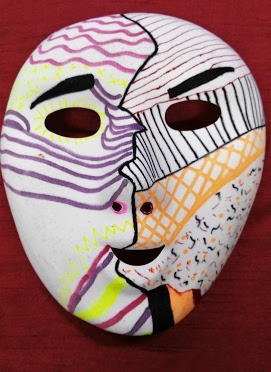Classics
 The Classics Department at CSG provides all students with the skills to investigate, evaluate and appreciate the different cultures, languages and achievements of the Romans and Greeks, understanding and evaluating the impact of the ancient world on the modern day. Unique within the maintained sector in London, our department offers Latin, Classical Greek and Classical Civilisation to all students at all key stages. In each of our subjects, we aim to develop students’ literary, historical and linguistic skills, enabling young people to explore other cultures as well as their own from a variety of different angles.
The Classics Department at CSG provides all students with the skills to investigate, evaluate and appreciate the different cultures, languages and achievements of the Romans and Greeks, understanding and evaluating the impact of the ancient world on the modern day. Unique within the maintained sector in London, our department offers Latin, Classical Greek and Classical Civilisation to all students at all key stages. In each of our subjects, we aim to develop students’ literary, historical and linguistic skills, enabling young people to explore other cultures as well as their own from a variety of different angles.
By exploring the roots of modern European language and literature, students develop rigour and precision, which enables them to critically evaluate language, argue from different perspectives and communicate ever more effectively; by engaging with a breadth and depth of stimulating and enriching original source material from the ancient world, learners develop their visual, textual and cultural literacy, enabling them to appreciate, analyse and find new meaning in the world around them.
Our courses are enhanced by a vibrant programme of extra- curricular activities, including visits to the theatre and museum collections both in and outside London; lectures and guest speakers, and annual residential trips to Greece and Italy to experience classical sites and cities firsthand.
Taught with expertise and passion, encouraging creativity, personal response, articulacy and accuracy, Classics provides an opportunity for every student to discover an aspect of the ancient world which allows them to express and explore their individuality, be it through language, literature, history, art or cultural investigation.
Curriculum Information
Year 8
Introduction to Myth
Students study a selection of mythological stories related to the creation of the world, the Greek and Roman gods and the world of heroes. Students produce creative work based on the stories.
Introduction to Language
Students are introduced to the Ancient Greek alphabet and they learn to write and recognise the letters as well as transliterating words from Ancient Greek which are used in English today. They also will learn some Latin and investigate connections between English and Latin.
Year 9
Classics
Greek epic - The Trojan War and Odysseus’ return to Ithaca
Students study the story of the Trojan War from the marriage of Peleus and Thetis, the parents of Achilles, to the destruction of Troy by the Greeks. They will focus on Homer’s portrayal of women in these stories, including Helen, Andromache and Penelope.
Greek tragedy – Medea and Antigone
Medea betrayed her family because of her love for Jason and she murders her own children to get the ultimate revenge. Students will study the themes contained in her story and discuss why she acted as she did. Antigone broke the law to bury her brother; students will discuss issues arising from this drama.
Latin
Students study selections from the Cambridge Latin Course which focuses on a family in Pompeii and their day to day lives. They will develop a good range of vocabulary and basic grammar. They will explore the links between Latin words and English derivations. They will also have some taster sessions of Classical Greek during the year.
They will study selections from the civilisation topics in the Cambridge Latin Course, for example Roman slavery and beliefs in life after death.
Year 10
Classical Greek – OCR
Students study ‘Greek to GCSE’ Book 1 by John Taylor. Students develop their knowledge of vocabulary and grammar through the translation of stories based upon history and myth and by completing language exercises. Students start to learn the GCSE vocabulary list.
Latin – OCR
Students complete selections from books 1, 2, 3 and 4 of the Cambridge Latin Course. The characters travel to Roman Britain, Egypt and Rome. Students will develop their knowledge of vocabulary and grammar by reading the stories and by completing language exercises. Students start to learn the GCSE vocabulary list.
Year 11
Classical Greek - OCR
Students continue their study of Classical Greek using John Taylor’s ‘Greek to GCSE’ Book 2. Students learn the GCSE vocabulary list and develop their knowledge of grammatical features through regular practice in translation and comprehension.
Students prepare for the prose and verse literature exams. They will study sections from Herodotus for the prose paper and from Homer for the verse paper. Students will translate the texts from Classical Greek into English and analyse the literary techniques used by each author.
Latin – Eduqas
The language work is developed through the text book ‘Essential Latin’ by John Taylor and regular translation and comprehension exercises. Further consolidation of the GCSE vocabulary list develops pupils’ knowledge.
Students prepare for the prose and verse literature exams. They will study sections from Roman authors including Apuleius, Pliny and Virgil for the prose and verse papers. Students translate the texts from Latin into English with their teachers and then analyse the literary techniques used by the author.
Classical Civilisation – OCR
Students prepare for their controlled assessment module on Sophocles’ Antigone. They also complete a module on Athens, which will be examined with modules studied in Year 10 on Pompeii and Homer’s Odyssey.
|
|
|
|

